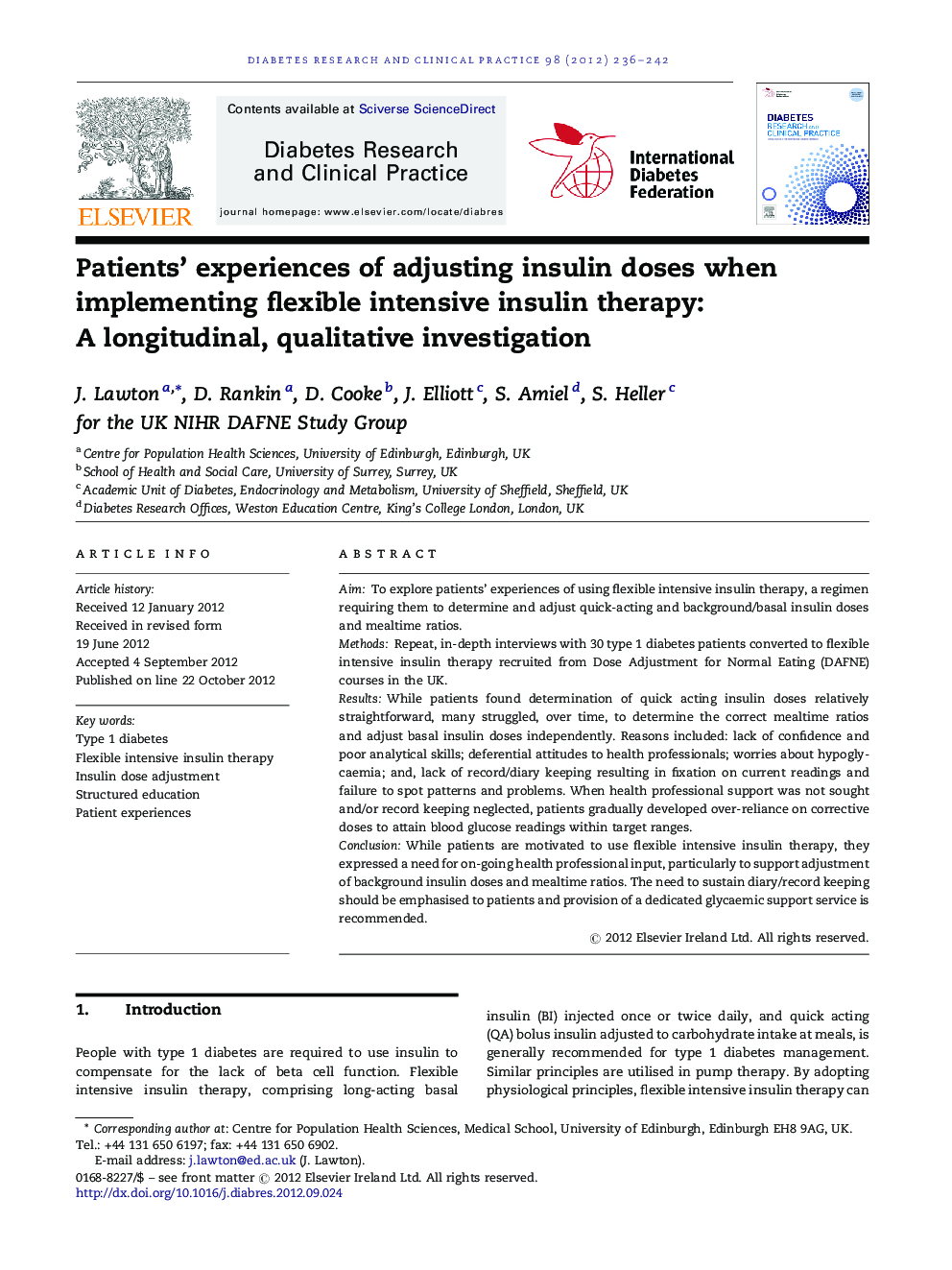| Article ID | Journal | Published Year | Pages | File Type |
|---|---|---|---|---|
| 2796857 | Diabetes Research and Clinical Practice | 2012 | 7 Pages |
AimTo explore patients’ experiences of using flexible intensive insulin therapy, a regimen requiring them to determine and adjust quick-acting and background/basal insulin doses and mealtime ratios.MethodsRepeat, in-depth interviews with 30 type 1 diabetes patients converted to flexible intensive insulin therapy recruited from Dose Adjustment for Normal Eating (DAFNE) courses in the UK.ResultsWhile patients found determination of quick acting insulin doses relatively straightforward, many struggled, over time, to determine the correct mealtime ratios and adjust basal insulin doses independently. Reasons included: lack of confidence and poor analytical skills; deferential attitudes to health professionals; worries about hypoglycaemia; and, lack of record/diary keeping resulting in fixation on current readings and failure to spot patterns and problems. When health professional support was not sought and/or record keeping neglected, patients gradually developed over-reliance on corrective doses to attain blood glucose readings within target ranges.ConclusionWhile patients are motivated to use flexible intensive insulin therapy, they expressed a need for on-going health professional input, particularly to support adjustment of background insulin doses and mealtime ratios. The need to sustain diary/record keeping should be emphasised to patients and provision of a dedicated glycaemic support service is recommended.
